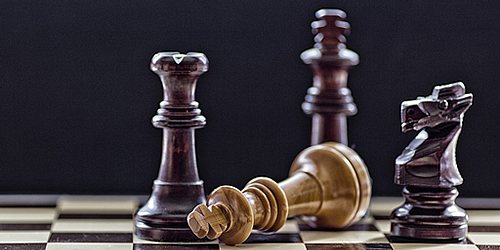In part 1, you learned how to plan your Chess game to gain an advantage. In brief, you need to have more materials of high value and have a superior piece or development. I want you to see each piece on a chessboard as a man you must lead to victory. You are the leader. Your ultimate aim is to protect the King under your care, which is known in the business parlance as shareholder value.
In any project, start by identifying the King. What is the ultimate end game? What is the desired outcome? What is that you must achieve or protect? In competitive games like football, the King is scoring more goals than you concede. Every other statistic in the game does not matter.
- Superior pawn structure. There is a reason why the Chess game has 8 pawns! Every leader starts with more men who have no experience. Great leaders, therefore, are ones who make the most of this raw talent.
The pawn is the man at the frontline. They must be trained, guided, and empowered to create a winning advantage. However, if your pawns are not developed in a way that they work as a team, the chances of losing all of them are high. It is suicidal to send your pawn alone into enemy territory. Chances of quick capture and or torture are high. As a leader, never send your less experienced man into enemy territory on their own. Do it in such a way that they are covered!
- More territory (space). Chess is a game played on a board of 64 squares. Each player’s starting position occupies 16 squares. One must calculate their moves in such a way that they win by capturing their other person’s king which is always protected by the queen on the immediate left and the bishop, knight, and rook, in that order on either side. In front of the queen, are footsoldiers that are willing to die to protect the king.
To gain an advantage is to capture more territory. To have your men move the furthest into energy territory, called ranks, in the chess world. The more ranks you enter into enemy space, while protecting yourself, the better advantage you gain. But remember, anytime anything can happen. As you gain territory, remember rules 2 and 3.
- Safe King position. All the above advantages are useless if the King is exposed. You don’t want to take chances. You have put your men at war to protect the King. And that means before you make any move, check whether the King is safe. Many times, you may focus on capturing the opponent’s King when yours is exposed. That is not good leadership.
Chief Executive Officers are always discouraged from fighting competitors head-on as such could erode shareholder value. The best strategy is to focus on creating shareholder value through aggressive innovation or inventiveness, and developing internal capabilities, as you keep an eye on competitor moves.
Have any questions? Feel free to ask me.
Copyright Mustapha B Mugisa, 2020. All rights reserved.







